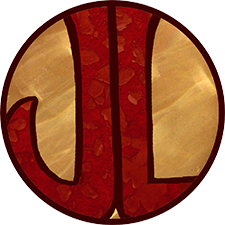Stories For All is a movement started by Bloomsbury and Shannon Hale (my favorite author) to stop gender stereotyping books to readers. This is based off of two assumptions made by society-
1. Boys cannot enjoy a book if it is about a girl.
2. Men's stories are for everyone, but women's stories are only for women.
Based off these assumptions, book recommendations for boys are usually very selective. Boys are taught to believe they cannot read books written by a female author, about female characters, or about anything considered feminine. They are made fun of if they not only choose to not read a "girly book", but also if they don't loudly protest anything considered "girly".
You see what I mean? It's an everyday, widely accepted part of our culture.
Shannon Hale shared this post on her blog discussing first hand experiences with this gender bias. She says,
This leads to generations of boys denied the opportunity of learning a profound empathy for girls that can come from reading novels. Leads to a culture where boys feel perfectly fine mocking and booing things many girls like and adults don't even correct them because "boys will be boys." Leads to boys and girls believing "girlie" is the gravest insult, that girls are less significant, not worth your time.
It's like in the Princess Bride when the boy at first really dislikes the book because he feels he's supposed to. In the movie he's playing a sports video game because what could be more manly than that? He doesn't want to have anything to do with the book. He even asks, "Does it have any sports in it?". His grandfather has to convince him that the book is manly enough for him, but he still complains every time there is something even remotely "girly", aka romance.
**News flash** Boys fall in love too!
When the romance starts the boy says, "When does it get good?" And asks about the sports. The grandfather insists that it'll get better and keeps reading. The boy begrudgingly lets him continue, but by the end of the book he's enthralled in the story, upset when it ends, and asks his grandfather to read it again because he no longer minds the "girly" parts.
That illustrates an amazing example of what happens when adults give boys the chance to form their own opinions, and when boys give themselves a chance to experience something they may be uncomfortable with. Amazing, right?
Shannon Hale leaves us with these questions at the end of her blog post, and I want to share them as well-
How deep is the assumption that there are boy books and girl books? Does it matter? What have you witnessed with regards to gendered reading? What damage does gendered reading cause to both girls and boys? What can each of us do to undo the damage and start making a change?
~Allie



3 comments:
I love the timing of this post as I was just discussing with my husband last night something very much like this. And I didn't even know there was some sort of movement about it.
I'll go ahead and take a bit of a contrary stance. I'll pick up a book with a girl in a princess dress, a book with a boy in a robin hood type outfit, and a book with some sort of symbol. My husband would never pick up the first book. I don't think it's based on a society pressure(who'd know but me?), but rather what interests men vs. women.
I'll read a book with primarily male characters on an adventure with no romance, one with equal male/female characters on an adventure with a hint of romance, and a fairytale type book where the romance is rather important. I enjoy all those things, but I don't think a lot of men are into fairy tales and such.
I agree that if a man/boy wants to read "girly" stories they should and not feel any sort of repercussions. But as a whole I feel they're genuinely not as interested in stories based around certain elements.
I'm not sure the gender of the author matters. Most readers I know(who aren't writers), don't pay attention to the author unless they want to find more books by said author.
Girl books/boy books, I think there's girl books and then there's books. Girls will read "boy books" but I don't see a lot of the reverse happening.
As an 8th grade English teacher, I teach The Outsiders and explain to my students that S.E. Hinton was made to use her initials by her publisher because they didn't think boys would read a book written by a girl.
I think it was the same for J.K. Rowling because her lead character was male. I see it everyday in the novels my students read.
I actually changed page 1 of my own novel so the male lead is first. I was afraid people would label it a "chick book" when I use third-person omniscient narration.
And The Princess Pride... be still my heart! I have a line in my book THE PLAYLIST where one friend calls the other Princess Buttercup and her friend answers, "My name is Indigo Montoya" :)
I never got that, either. I was one of the few who admitted to reading Twilight (and enjoying it).
Post a Comment